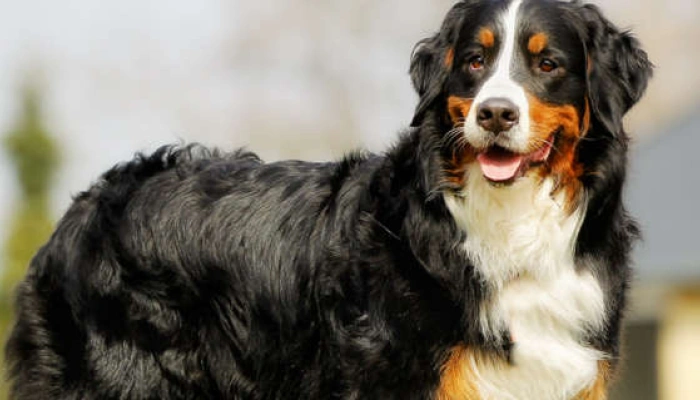The Bernese Mountain Dog hails from the Swiss Alps, where it was originally used for pulling carts, herding cattle, and guarding farms. Today, this gentle giant is beloved for its calm, affectionate personality and its devotion to family.
Berners are large, sturdy dogs with thick, tricolor double coats and expressive eyes. They’re known for being good-natured, patient, and especially gentle with children. Though powerful and capable, their personalities are soft and loyal.
These dogs do best in cooler climates and open spaces. They love being with their humans and don’t do well left alone for long periods. While they enjoy relaxing at home, they still need daily activity to stay healthy and happy.







